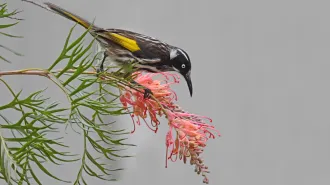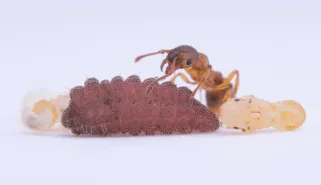Using tiny key cards glued to ants’ backs, researchers have figured out how colonies manage their food stores: A body weight–based strategy determines who’s doing the hunting and when.

To test the relevance of body weight and experience in foraging, researchers saddled ants (Temnothorax albipennis) with electronic tags smaller than a pinhead and installed a mini automatic door in the colony’s nest to control who could leave.
“It’s like if you didn’t want your teenage son to drive the car, you could disable his garage-door opener so he couldn’t get out,” says biologist Elva Robinson of the University of York in England.
Blocking lean ants from leaving forced stay-at-home tubby ants to gain experience foraging. But the insects switched back to their normal jobs when researchers reopened the doors, Robinson and colleagues report online July 12 in the Journal of Experimental Biology.
Only when the colony’s collective belly is full, Robinson says, will foragers rest and gain weight. This strategy lets colonies use ant weight to gauge food stores. A skinny ant is like a bare cupboard: Both mean it’s time to look for food.






